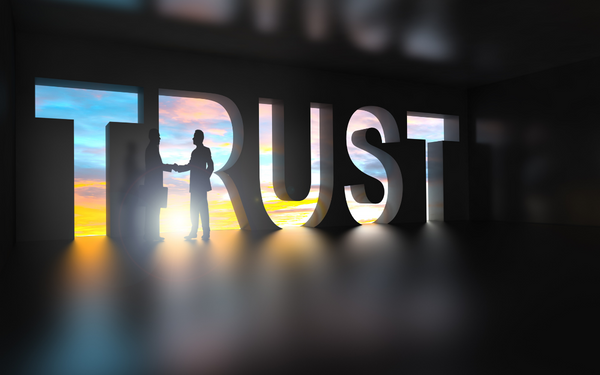Feb13

In a society obsessed with solving problems, it’s easy to fall into the trap that there is an expert who can fix them for us. We have been so enamored with the idea of expertise that we often give our power away.
We are actually encouraged to be the expert in everything. Our decaying world has a love affair with celebrity, worship and following the crowd. And so many young people as a result want external validation through fame and money, as do "grown ups" actually!
But the truth is, the "cult of the expert,“ as Sir Ken Robinson shared about our current education system, can be incredibly limiting. He never wanted to be the expert himself.
Have we asked ourselves why the current education system instills a fear of being wrong, which prevents us from thinking for ourselves?
When we rely solely on experts (and AI) to guide us and make decisions, we neglect the power of our own intelligence and deeper knowing. Our ability to be discerning slowly gets shut down when we trust people outside ourselves more than our own hearts and minds.
Community science, began in the late 19th and early 20th centuries. Ordinary people collected and recorded data, often as part of larger scientific projects. Citizen science emerged in the 1990s when people were able to participate in scientific research on a larger scale due to systems that enabled collaboration.
Today, citizen science is on the rise as a result thanks to our ability to connect to each other through technology. We are beginning to become aware that insights and experiences of everyday people are just as valuable as that of the gurus. We are aware that our perspectives and experiences play a critical role in shaping our understanding of the world.
The big shift is happening slowly when we are choosing not to blindly trust those in positions of authority. Because they often do not know what we need and are working on their own agendas. We have witnessed over the last few decades so many harmful decisions that have had a profound impact on increased division.
And we’re no longer willing to put more lipstick on a bulldog. We want peace and healthy living. It’s that simple. And it’s up to each of us to be in charge of our bank of trust. Understanding that we will experience heartbreaks along the way, which inform us who is trustworthy and walks the talk. Not just talks.
We’ve talked about it before that of course, we want a mechanic to help us with our vehicles. We want heart-centered medical professionals to help us with our holistic health. We want conscious lawyers to help us create conscious contracts.
But we are aware that there is no expert on our lives and only people who can ask questions and listen. And we always listen to our hearts in alignment with our mind. It’s up to us to no longer need to be right or wrong and fight for our lives.
There is magic in the not knowing and we can honestly share, we don't know as no one needs to test us. Our power lies in our ability to be real and raw. And if we get shamed then maybe we need to understand that we are in an unhealthy situation? The question is, do we have the courage to break through the 'cult of the expert’?
There is a healthy path where we value experiences and insights. And make them our own. We leave the archetypes, stories, models and someone else's analysis of who we are behind. And imagine and design our own existence. This is why dialogue and community are increasingly making a comeback in a world where no one wants to be lectured.
By doing so, we create a healthy world where we have a voice. And the opportunity to find our way with people who care about what we care about.
By Ayelet Baron
Keywords: Entrepreneurship, Future of Work, Leadership
 Lateral Moves: The Most Overlooked Succession Strategy in Companies
Lateral Moves: The Most Overlooked Succession Strategy in Companies The Asset Play: Timing, Structure & Global Arbitrage
The Asset Play: Timing, Structure & Global Arbitrage  The Orchestra Needs a Conductor: Why Multi-Model Agents Require H2E Governance
The Orchestra Needs a Conductor: Why Multi-Model Agents Require H2E Governance The Role of Memory in Modern-day Business
The Role of Memory in Modern-day Business The Architectures of Permanence: A Comparative Analysis of the "Big Three" AI Strategies (2026)
The Architectures of Permanence: A Comparative Analysis of the "Big Three" AI Strategies (2026)